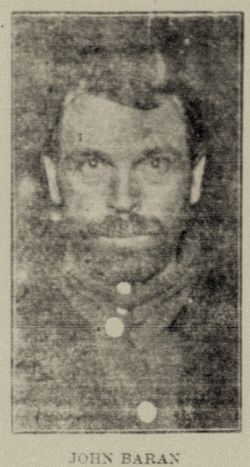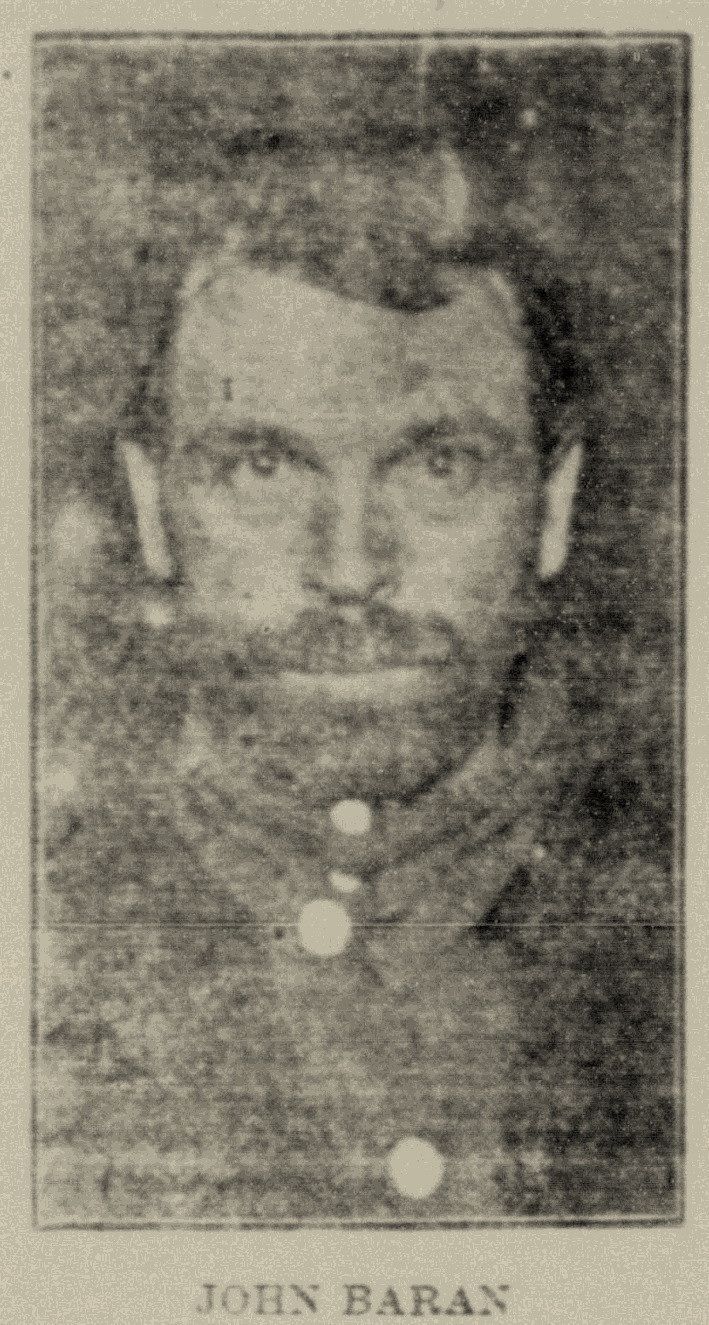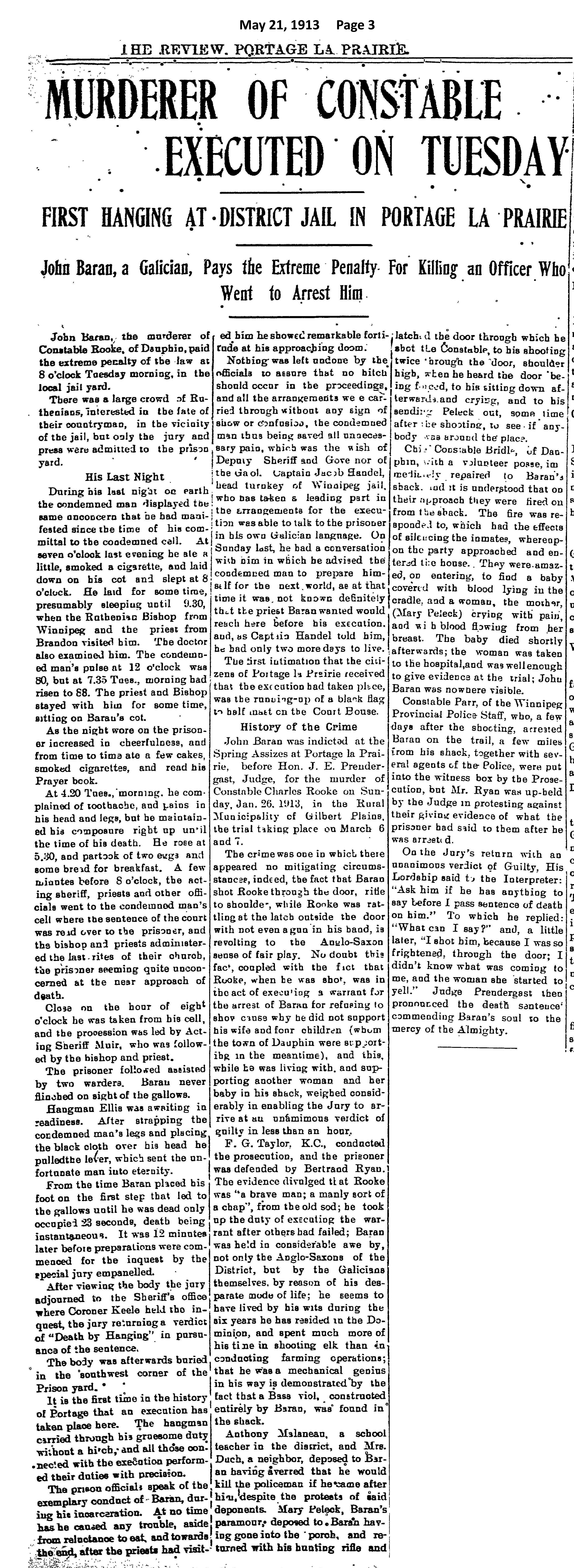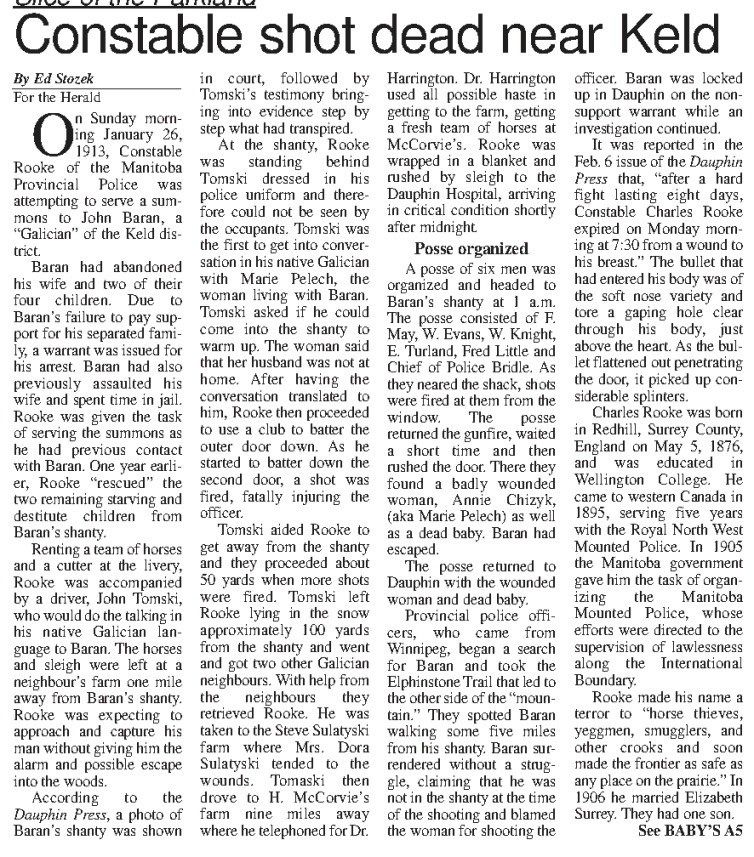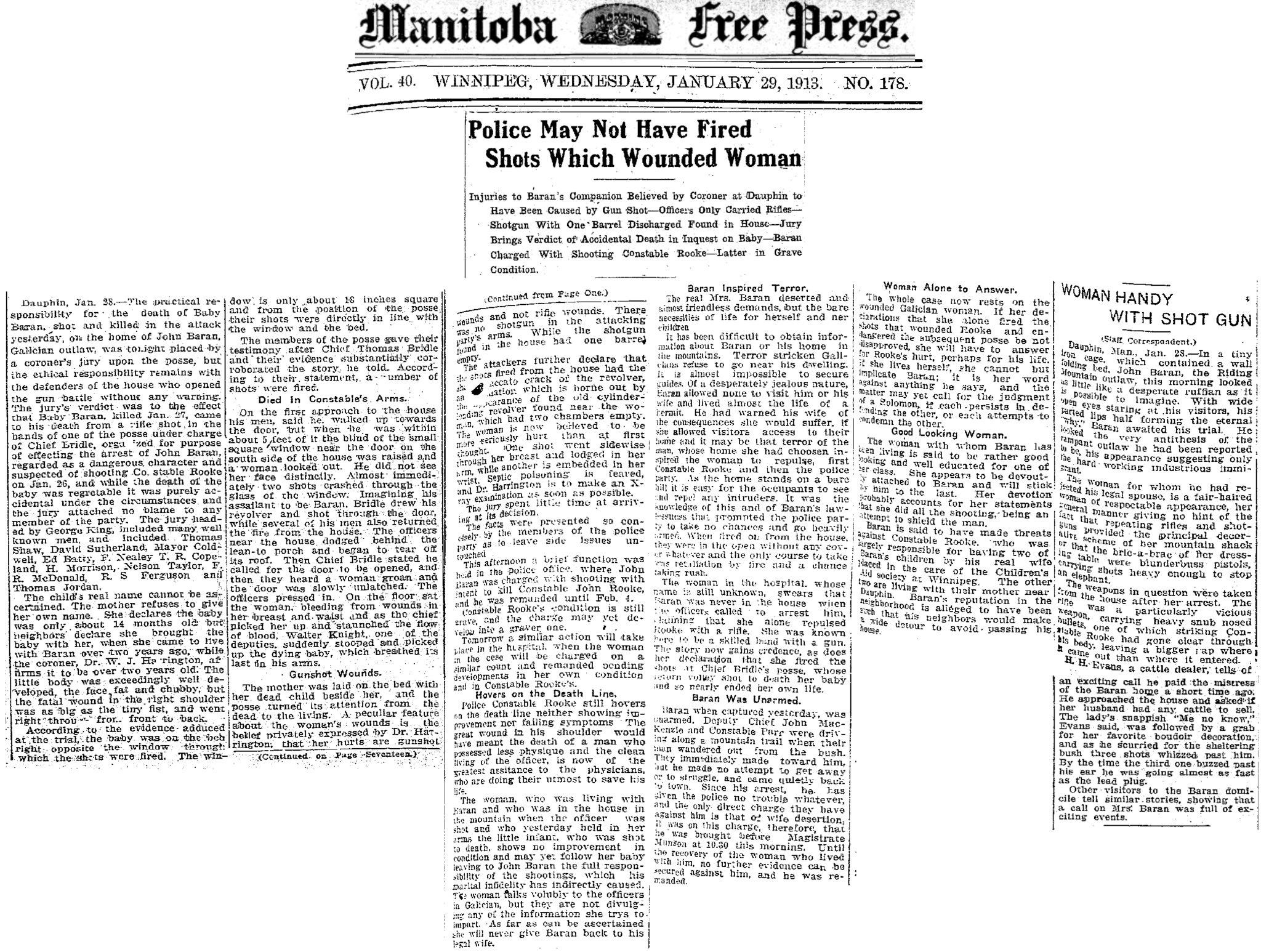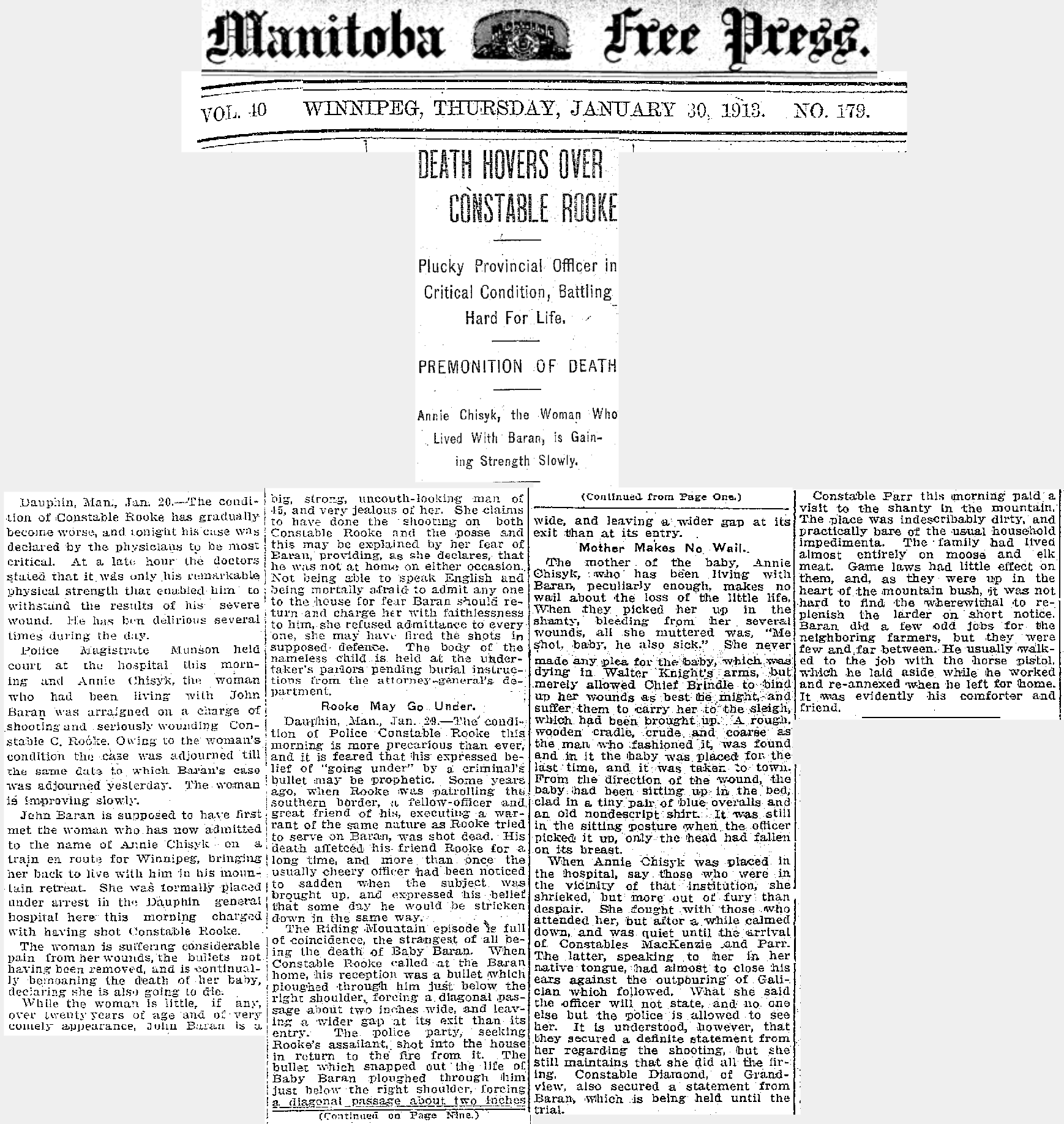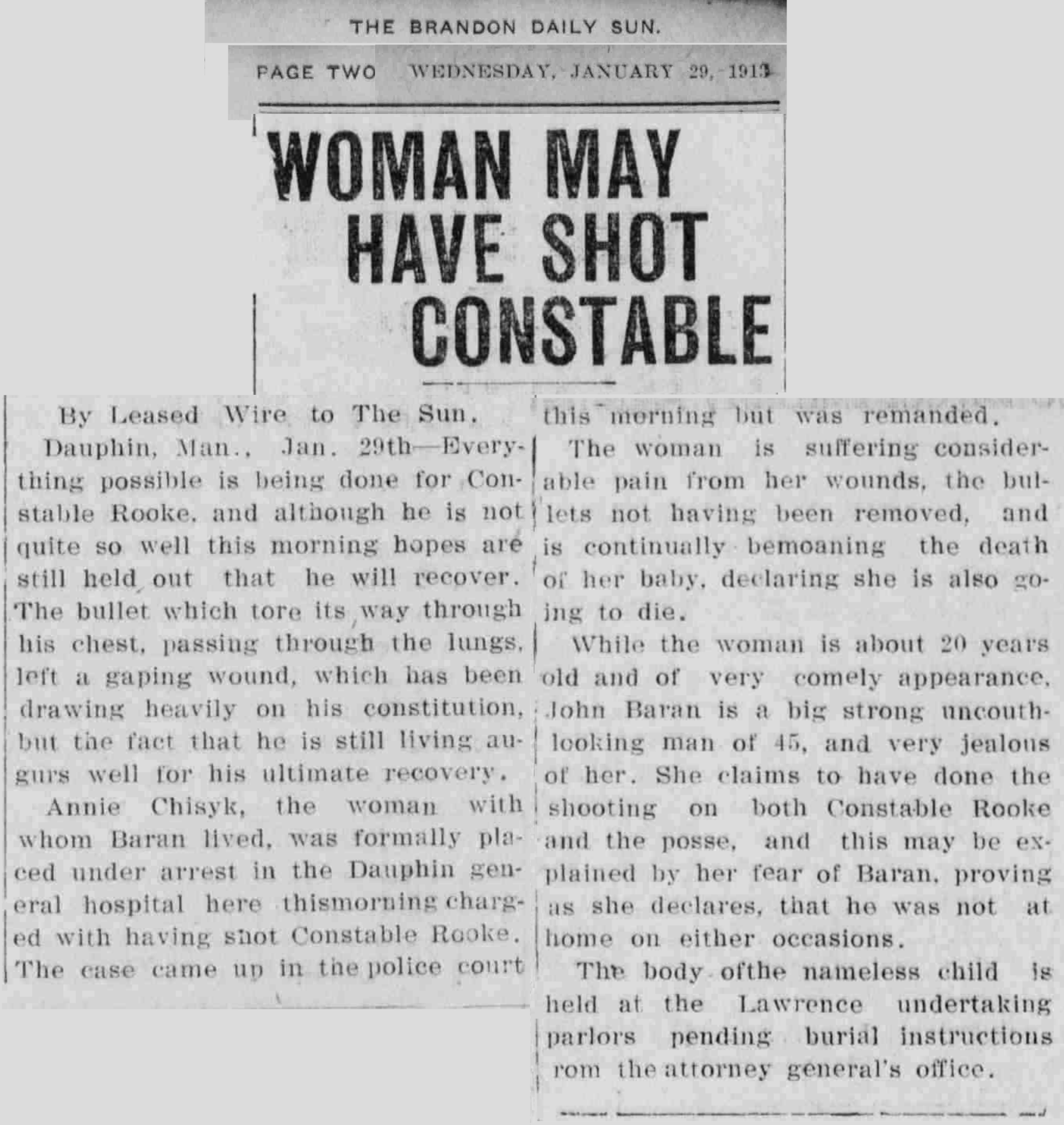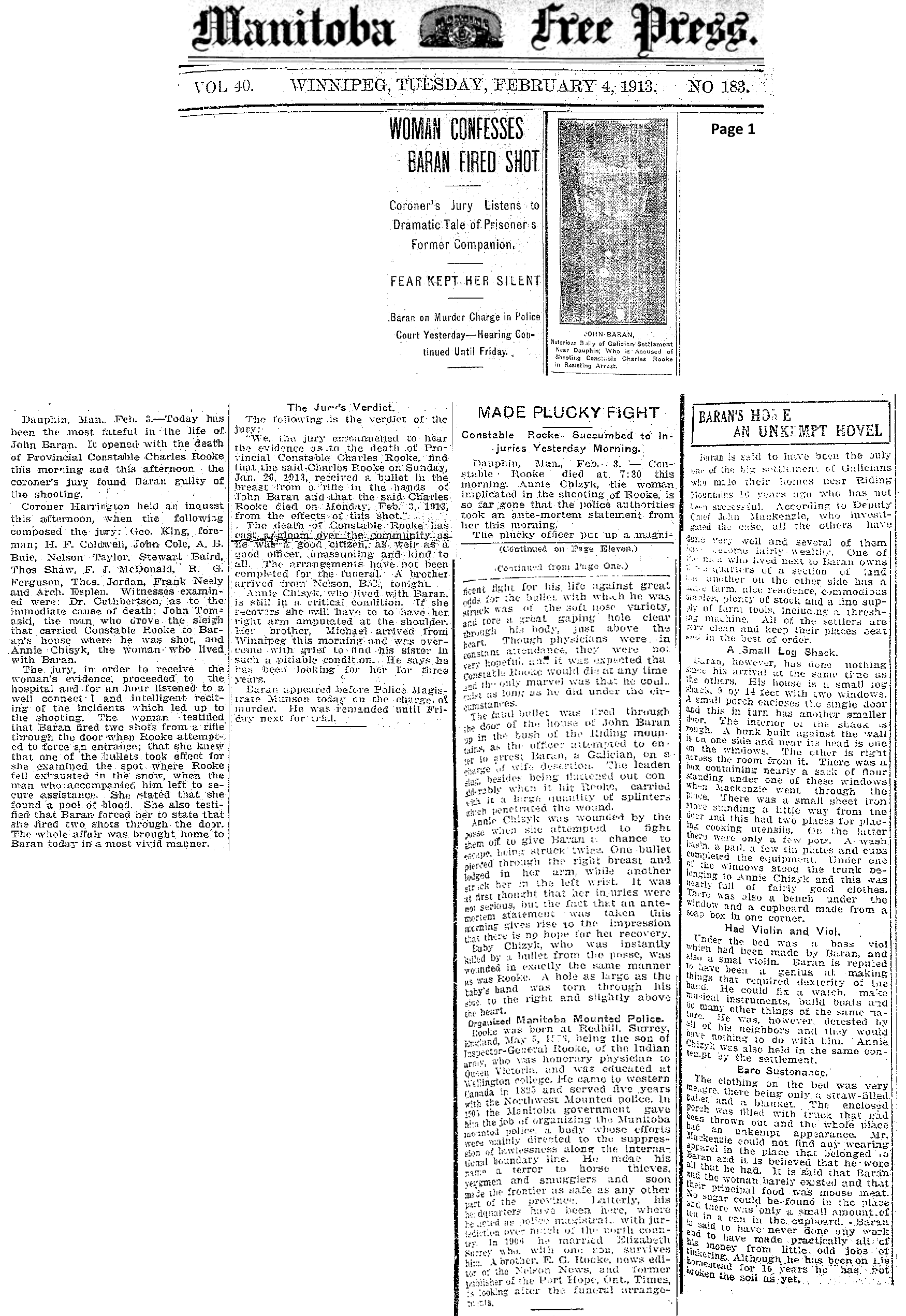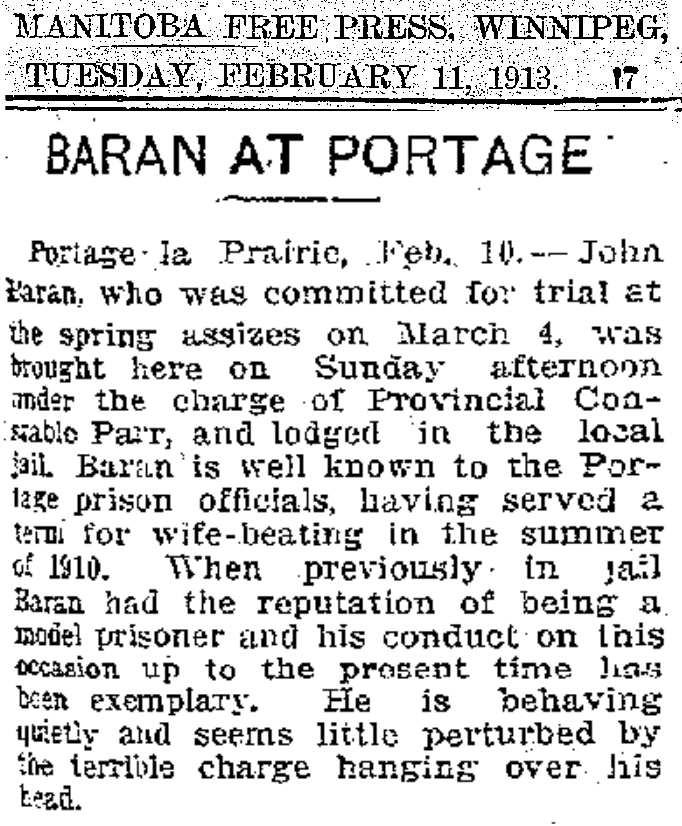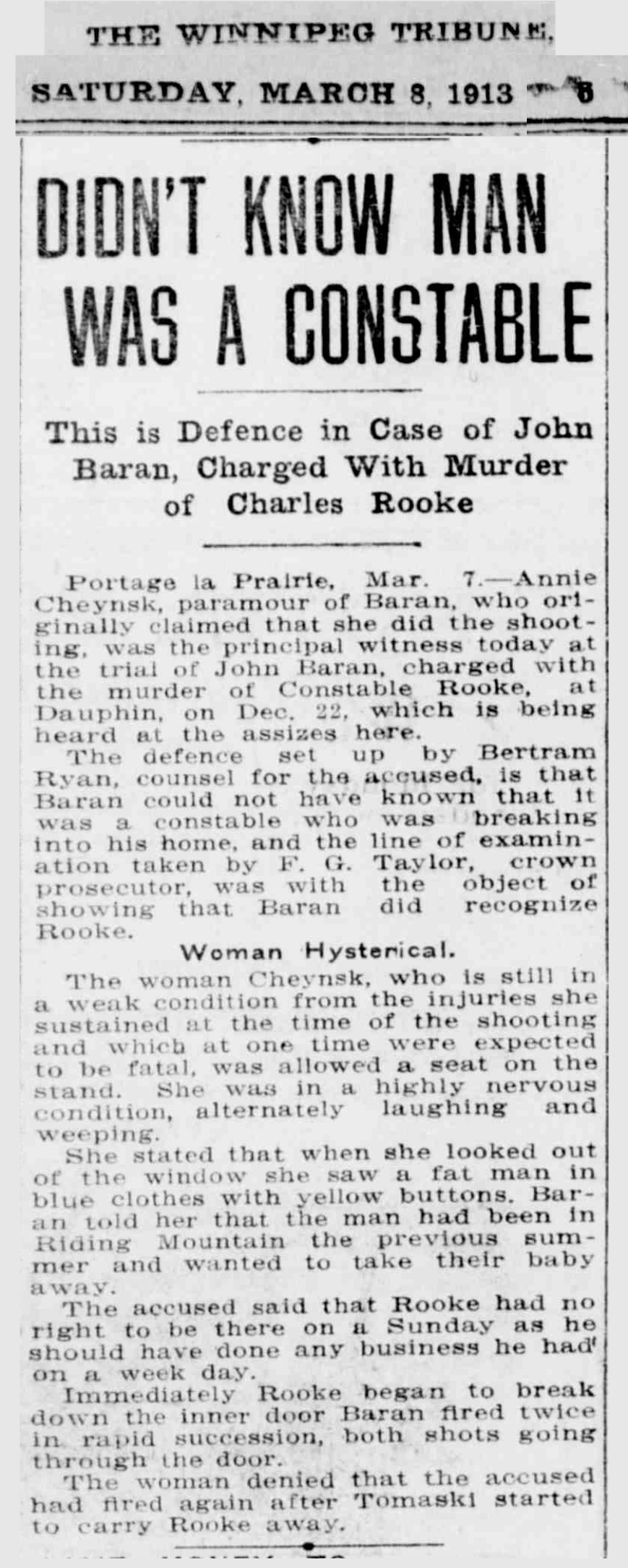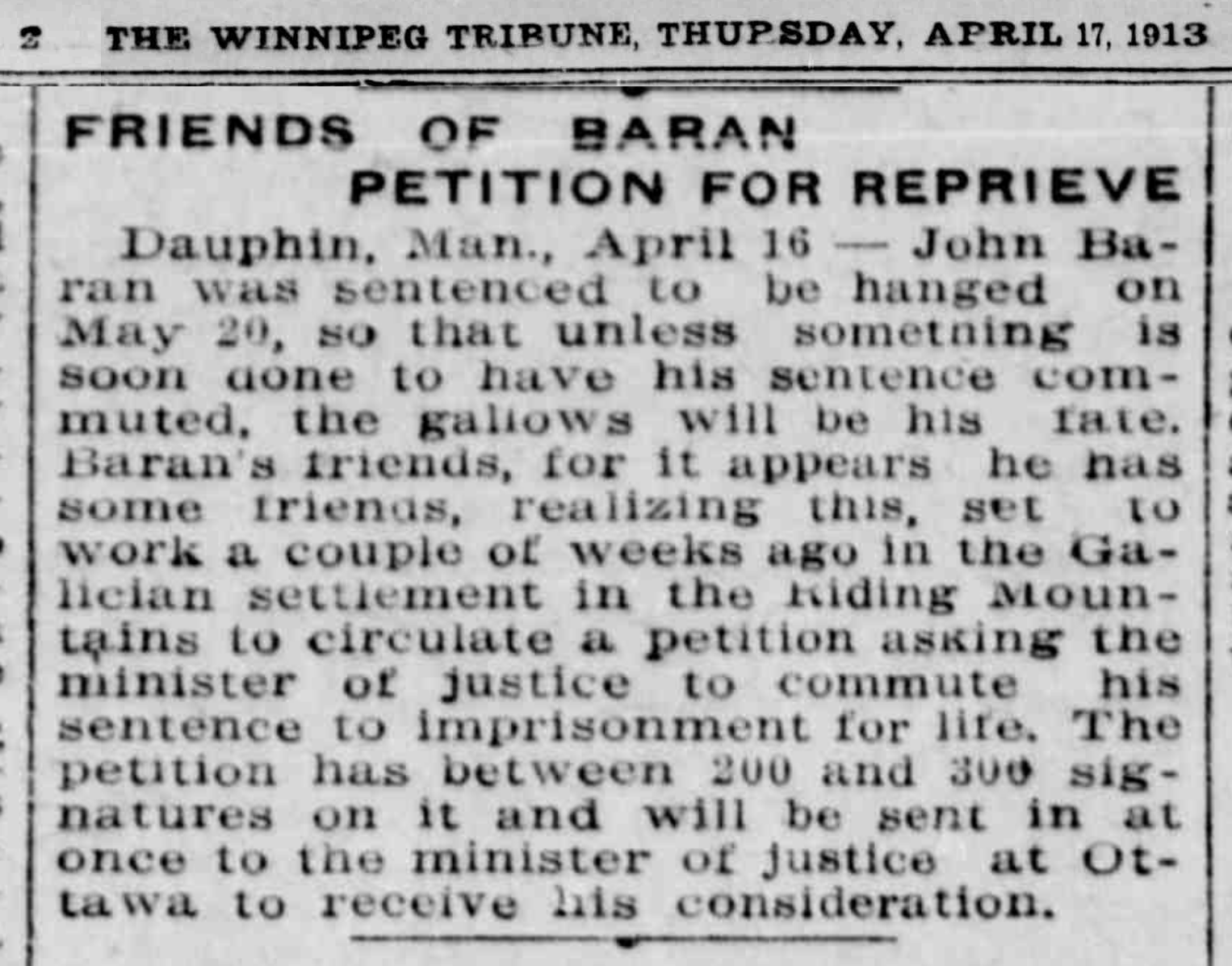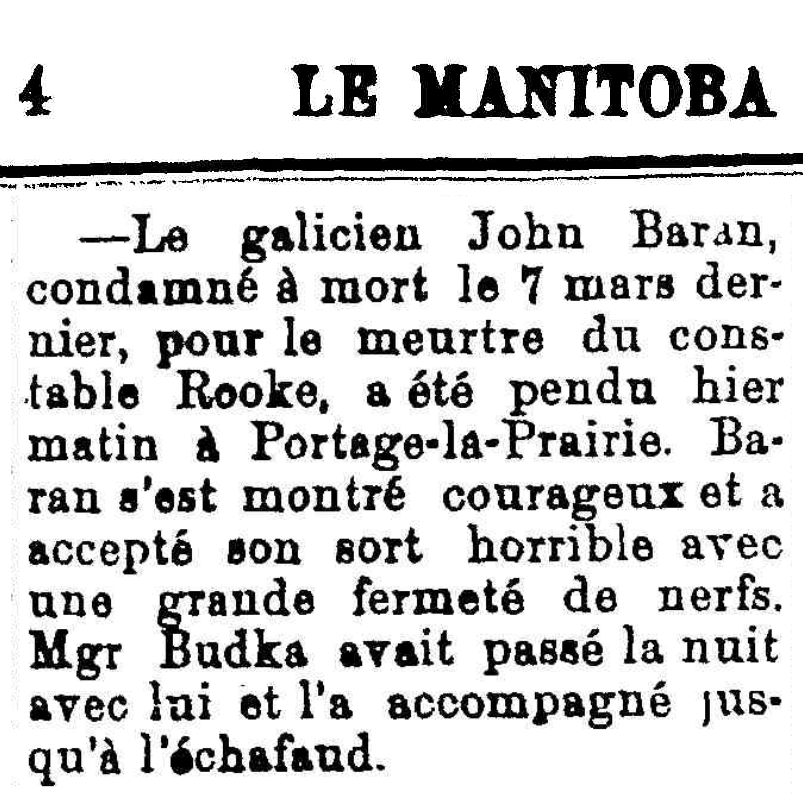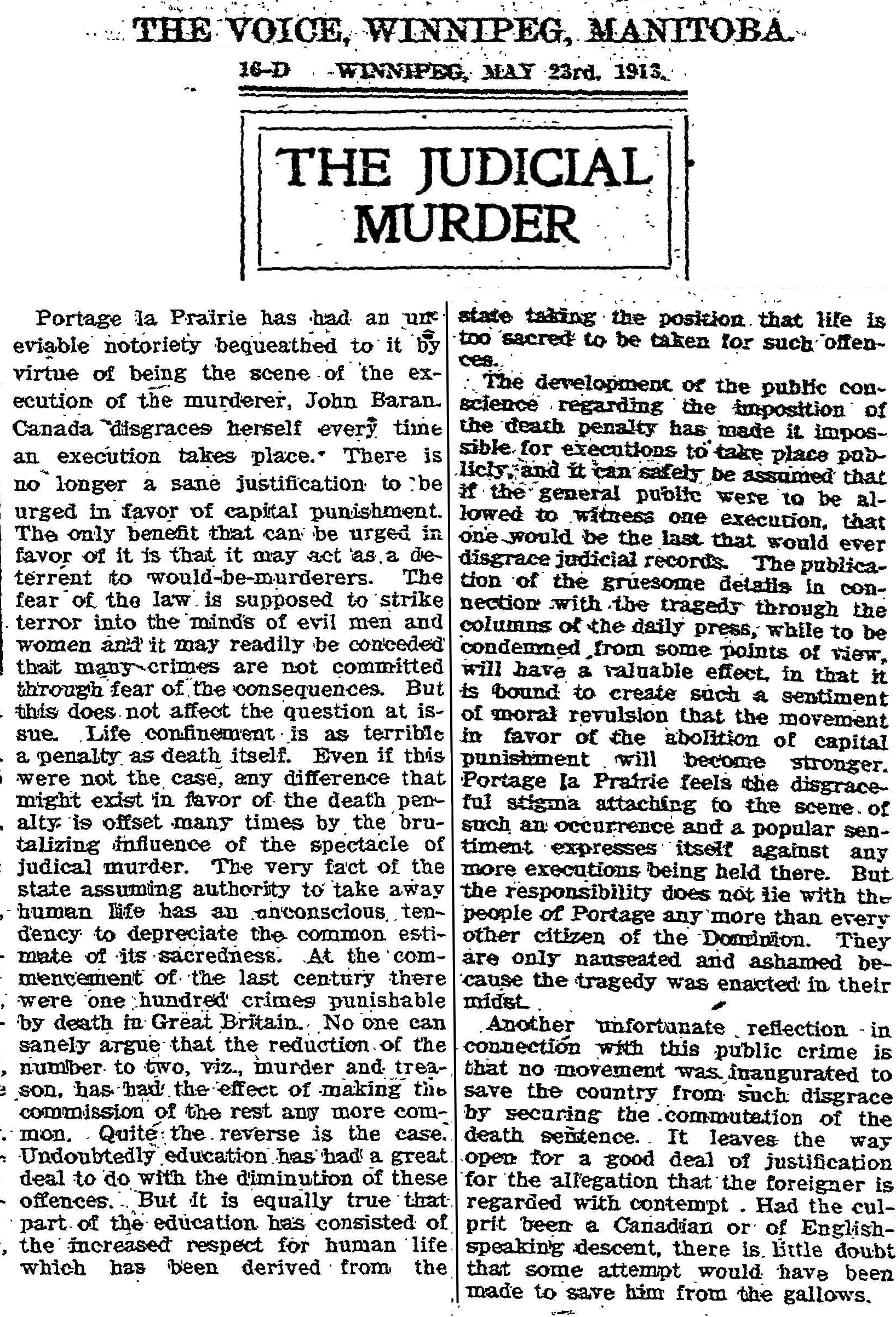Available records indicate he was born in Bazar, part of the Chortkiw district in the province of Galicia, then a part of the Austrian Empire; Most probable modern reference: Bazar, Chortkivs'kyi, Ternopil, Ukraine (48.9471207, 25.5654648). He was the son of Stephani and his wife Maria Marjir (spelling may be incorrect).
He may have been married once before his marriage to Tetiana Kokotiac on February 4 1896, in Bazar, Ternopil Oblast, in house #123. He came to Canada on the SS Prussia from Hamburg, Germany to Halifax, NS, and settled on SW-33-23-20-W1 [near 51.024237,-100.223889] Keld in May 1897, with Anna and an unknown child (the writing on the documents is illegible).
This area (Keld) was a forest reserve and the Ukrainian immigrants settled and squatted on the land (against Government ruling). After 7 years, the government gave up and gave the settlers the land and redrew the park borders around them. This is why he applied for a land permit later.
There was an application for entry to homestead #138293 by an "Iwan Baran". Designated as SW-33-23-20-W1, near Keld, MB, but this application occurred in October, 1903, and per the available documentation, the family would have still been in Europe at this time. It is also understood the ground was never broken on any homestead allocated to him during his lifetime. Despite its proximity to later events, this would seem to NOT be the land the family occupied.
The first child known to have been born in Canada to his wife, Tetiana, was Michael, in October, 1906, later adopted by the Chesko family.
No Canadian census records for the family have come to hand dating prior to his death (2022).
At some time in 1910, he had served jail time for beating his wife (i.e., Tetiana). At about that time, Tetiana and two of the children were placed in the public charge and were living in Dauphin. Two of the children had also been apprehended by the authorities and placed for adoption with the Children's Aid Society in Winnipeg. That encounter with Constable Rooke would influence the one that happened later.
He was renowned for his skill in crafts requiring manual dexterity, including making musical instruments, fixing watches, and building boats, but he was detested by all in the area; his companion in 1913, "Annie", was held in the same contempt. Baran apparently always wore the only clothes that were his. The couple apparently barely subsisted. He did not farm. His lifestyle as a virtual hermit was one described as poor, eating mostly elk, moose, and other game he hunted regardless of the season. The home was "decorated principally with repeating rifles, shotguns, and blunderbuss pistols".
His neighbours were terrorized by him, having had several encounters that resulted in being chased from his property by gunfire. He often carried a heavy pistol when off his property. It was described by observers as his "comforter and friend". He was also reported by neighbours to have said more than once that were the police to come to his home again, he would kill the officer and commit suicide.
In the reports about the shooting, his capture, the trial, the sentencing, and his execution, there are conflicting accounts of his literacy. He was variously either illiterate or often reading the bible.
On the evening of January 26, 1913, Baran shot through the door of his dwelling, killing Constable Rooke, who was attempting to serve a summons for non-support of his legal wife, Tetiana, and their children. When another group of officers, one of three posses after him, returned the following day, shots were fired resulting in Baran's paramour (attractive, hailing from "Kamsack", aged about 20, and in the reports, variously named Annie Chisick / Chysick / Chenshi / Chensick or Mary / Marie / Maria Peleck / Pelack / Pelock / Pellock) being seriously injured and the death of a young girl.
The child was one the woman had brought with her when she had come to live with him about 15 months prior. In the available accounts, neither the child's identity nor its age (variously 14 to more than 24 months) were ever reported with any certainty. Reports say Baran met her on a train bound for Winnipeg and brought her back to live with him. Throughout their time together, he was very jealous of her and, as much as possible, prevented her from having contact with anyone else.
Initially, the woman claimed she had fired the shots through the door, However, when interviewed again following the death of Constable Rooke, her story changed and it was now John Baran who did the shooting and she claimed it was he who forced her to make the earlier claim.
Some stories tell that she showed little effect from the loss of the child, others tell us she grieved considerably. In one such report, she is said to have claimed she shot the "sick" child, and the nature of the baby's wounds were such that this may have been the case, being the result of a shotgun blast and not a rifle, with none of the officers carrying such a weapon. Later, Baran laments having shot both of them.
Her own recovery was long and arduous. During the course of her recovery, a brother, who had been looking for her for three years, came to visit her, but he was not named in the accounts. She did not want Baran to return to his wife and family.
Following a trial in which his sole defence was his claim he could not have known the man attempting to enter his home through the use of force was an officer of the law, on March 7, he was convicted of the murder of Const John Rooke. His sentence was death by hanging, to be carried out on May 20. The judge instructed him he saw no chance of commuting the sentence or other clemency.
Throughout his incarceration, both before and after the trial, he was described as a model prisoner, though he rarely if ever spoke with his guards. His mood was described variously as sullen, despondent, or resigned, and his condition as weakened or good. Closer to the date of his execution, he was visited for some days by Father Boels, a priest of the Greek rite. On the last day before the event, he was also visited by Monsignor Budka, described as a Bishop of the same church. It was during this time that he was described as taking solace in "reading the bible".
As had been prescribed at his sentencing, he was executed by hanging in the PLP jail yard on May 20. Following an inquest which determined his death to have been the result of the hanging, his body was laid to rest in the southwest corner of the yard. No death registration has yet come to hand (2022).
A journal known as "The Voice" published a piece following his death that lamented the continued use of capital punishment by the Courts and society, pointing out its failure as a deterrent and its brutalizing effect on society as a whole.
The couple is understood to have had and lost one other child in Galicia prior to coming to Canada, a first Michael, born in 1903 and died in 1904. Baran's death left his estranged widow with four known children ranging in age from about 14 to about 3. Two of them are known to have been apprehended earlier. The three younger among them were eventually all adopted out to other families.
With contributions from Al Rempel and Charlene Bosiak
Available records indicate he was born in Bazar, part of the Chortkiw district in the province of Galicia, then a part of the Austrian Empire; Most probable modern reference: Bazar, Chortkivs'kyi, Ternopil, Ukraine (48.9471207, 25.5654648). He was the son of Stephani and his wife Maria Marjir (spelling may be incorrect).
He may have been married once before his marriage to Tetiana Kokotiac on February 4 1896, in Bazar, Ternopil Oblast, in house #123. He came to Canada on the SS Prussia from Hamburg, Germany to Halifax, NS, and settled on SW-33-23-20-W1 [near 51.024237,-100.223889] Keld in May 1897, with Anna and an unknown child (the writing on the documents is illegible).
This area (Keld) was a forest reserve and the Ukrainian immigrants settled and squatted on the land (against Government ruling). After 7 years, the government gave up and gave the settlers the land and redrew the park borders around them. This is why he applied for a land permit later.
There was an application for entry to homestead #138293 by an "Iwan Baran". Designated as SW-33-23-20-W1, near Keld, MB, but this application occurred in October, 1903, and per the available documentation, the family would have still been in Europe at this time. It is also understood the ground was never broken on any homestead allocated to him during his lifetime. Despite its proximity to later events, this would seem to NOT be the land the family occupied.
The first child known to have been born in Canada to his wife, Tetiana, was Michael, in October, 1906, later adopted by the Chesko family.
No Canadian census records for the family have come to hand dating prior to his death (2022).
At some time in 1910, he had served jail time for beating his wife (i.e., Tetiana). At about that time, Tetiana and two of the children were placed in the public charge and were living in Dauphin. Two of the children had also been apprehended by the authorities and placed for adoption with the Children's Aid Society in Winnipeg. That encounter with Constable Rooke would influence the one that happened later.
He was renowned for his skill in crafts requiring manual dexterity, including making musical instruments, fixing watches, and building boats, but he was detested by all in the area; his companion in 1913, "Annie", was held in the same contempt. Baran apparently always wore the only clothes that were his. The couple apparently barely subsisted. He did not farm. His lifestyle as a virtual hermit was one described as poor, eating mostly elk, moose, and other game he hunted regardless of the season. The home was "decorated principally with repeating rifles, shotguns, and blunderbuss pistols".
His neighbours were terrorized by him, having had several encounters that resulted in being chased from his property by gunfire. He often carried a heavy pistol when off his property. It was described by observers as his "comforter and friend". He was also reported by neighbours to have said more than once that were the police to come to his home again, he would kill the officer and commit suicide.
In the reports about the shooting, his capture, the trial, the sentencing, and his execution, there are conflicting accounts of his literacy. He was variously either illiterate or often reading the bible.
On the evening of January 26, 1913, Baran shot through the door of his dwelling, killing Constable Rooke, who was attempting to serve a summons for non-support of his legal wife, Tetiana, and their children. When another group of officers, one of three posses after him, returned the following day, shots were fired resulting in Baran's paramour (attractive, hailing from "Kamsack", aged about 20, and in the reports, variously named Annie Chisick / Chysick / Chenshi / Chensick or Mary / Marie / Maria Peleck / Pelack / Pelock / Pellock) being seriously injured and the death of a young girl.
The child was one the woman had brought with her when she had come to live with him about 15 months prior. In the available accounts, neither the child's identity nor its age (variously 14 to more than 24 months) were ever reported with any certainty. Reports say Baran met her on a train bound for Winnipeg and brought her back to live with him. Throughout their time together, he was very jealous of her and, as much as possible, prevented her from having contact with anyone else.
Initially, the woman claimed she had fired the shots through the door, However, when interviewed again following the death of Constable Rooke, her story changed and it was now John Baran who did the shooting and she claimed it was he who forced her to make the earlier claim.
Some stories tell that she showed little effect from the loss of the child, others tell us she grieved considerably. In one such report, she is said to have claimed she shot the "sick" child, and the nature of the baby's wounds were such that this may have been the case, being the result of a shotgun blast and not a rifle, with none of the officers carrying such a weapon. Later, Baran laments having shot both of them.
Her own recovery was long and arduous. During the course of her recovery, a brother, who had been looking for her for three years, came to visit her, but he was not named in the accounts. She did not want Baran to return to his wife and family.
Following a trial in which his sole defence was his claim he could not have known the man attempting to enter his home through the use of force was an officer of the law, on March 7, he was convicted of the murder of Const John Rooke. His sentence was death by hanging, to be carried out on May 20. The judge instructed him he saw no chance of commuting the sentence or other clemency.
Throughout his incarceration, both before and after the trial, he was described as a model prisoner, though he rarely if ever spoke with his guards. His mood was described variously as sullen, despondent, or resigned, and his condition as weakened or good. Closer to the date of his execution, he was visited for some days by Father Boels, a priest of the Greek rite. On the last day before the event, he was also visited by Monsignor Budka, described as a Bishop of the same church. It was during this time that he was described as taking solace in "reading the bible".
As had been prescribed at his sentencing, he was executed by hanging in the PLP jail yard on May 20. Following an inquest which determined his death to have been the result of the hanging, his body was laid to rest in the southwest corner of the yard. No death registration has yet come to hand (2022).
A journal known as "The Voice" published a piece following his death that lamented the continued use of capital punishment by the Courts and society, pointing out its failure as a deterrent and its brutalizing effect on society as a whole.
The couple is understood to have had and lost one other child in Galicia prior to coming to Canada, a first Michael, born in 1903 and died in 1904. Baran's death left his estranged widow with four known children ranging in age from about 14 to about 3. Two of them are known to have been apprehended earlier. The three younger among them were eventually all adopted out to other families.
With contributions from Al Rempel and Charlene Bosiak
Family Members
Sponsored by Ancestry
Advertisement
Explore more
Sponsored by Ancestry
Advertisement
